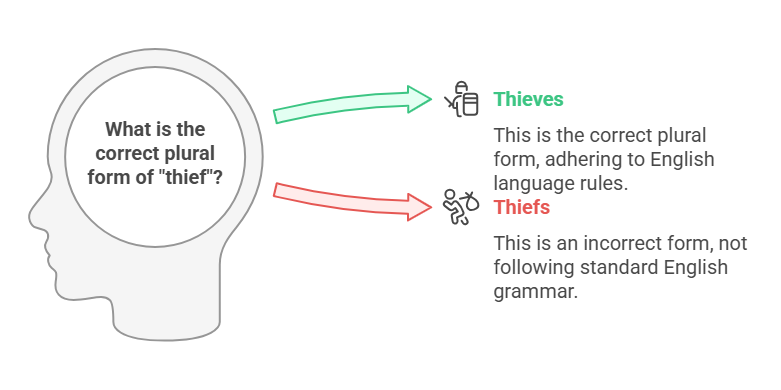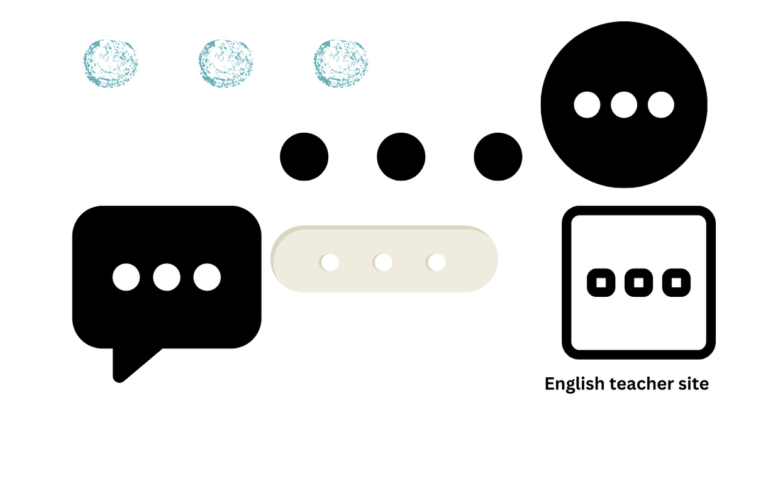The Plural of Thief: What You Need to Know

Why the Plural of Thief is Often Misunderstood
The plural form of “thief” is often misunderstood, particularly among those learning English or non-native speakers. The confusion stems from the belief that the plural of “thief” follows the regular rule of adding an “s” to the singular noun. In many cases, this would be accurate—”cat” becomes “cats,” “dog” becomes “dogs,” and so on. However, “thief” does not conform to this simple rule, which leads to common mistakes like “thiefs.” Such confusion arises because English, with its vast array of exceptions, does not always adhere to predictable patterns, especially when it comes to irregular plurals.
Understanding the Plural of Thief
The Correct Plural: Thieves
The correct plural form of “thief” is “thieves.” Unlike regular nouns that simply add “s” or “es” in the plural form, “thief” undergoes a vowel change to form its plural. In this case, the “ie” in “thief” changes to “ie” in “thieves.” This is a hallmark of many irregular nouns in English, which do not follow the standard rules for pluralization. Thus, when referring to more than one thief, you should always use “thieves.”
Why Thief Doesn’t Follow Regular Pluralization Rules
“Thief” doesn’t follow the regular pluralization pattern because it is an irregular noun. English has a collection of words with irregular plural forms, and “thief” is one such example. Irregular plurals in English can take various forms, including changes in vowel sounds or completely different words. For “thief,” the change is a vowel shift. Understanding these irregularities is key to mastering English grammar, especially for those who wish to improve their fluency.
Common Mistakes with the Plural of Thief
The Confusion Between Thiefs and Thieves
A common mistake that many people make is using “thiefs” as the plural of “thief.” This error arises from the false assumption that “thief” is a regular noun, and therefore, its plural should follow the standard rule of adding “s” or “es.” However, as explained earlier, “thief” is an irregular noun, and its plural form is “thieves,” not “thiefs.” Correcting this mistake is essential for proper grammar usage in both written and spoken English.
Why Adding “s” is Incorrect for Thief
Adding “s” to “thief” results in the incorrect form “thiefs.” This is a prime example of a mistake that occurs when irregular nouns are treated like regular nouns. The root cause of this error lies in the assumption that all nouns follow the same pluralization rule. In reality, irregular nouns like “thief” require special attention to their unique pluralization rules, which often involve vowel changes or even entirely different words for the plural form.
Real-Life Examples of Misused Plurals
Incorrectly using “thiefs” in sentences, such as “The thiefs were arrested,” can lead to confusion and undermine the credibility of the speaker or writer. In professional or formal writing, such mistakes are easily noticed and may detract from the overall quality of the work. Ensuring the proper use of irregular plurals like “thieves” can prevent these errors and enhance the clarity and accuracy of communication.

How to Master Irregular Plurals Like Thieves
Strategies for Remembering the Plural of Thief
One effective strategy for remembering the plural of “thief” is to practice with word pairs. By associating “thief” with other irregular plural nouns, such as “goose” and “geese,” you can create mental connections that make it easier to remember that “thief” becomes “thieves.” Repetition, whether through reading, writing, or speaking, can also help cement the correct plural form in your memory. Using “thieves” regularly in conversations or writing exercises will make it feel more natural over time.
Tips for Identifying Irregular Plurals in English
To identify irregular plurals, it’s helpful to familiarize yourself with the most common patterns in English. While irregular plurals don’t follow a single rule, many of them involve vowel changes (as with “thief” and “thieves”) or completely different words (such as “man” and “men”). By recognizing these patterns and practicing their use, you can gain confidence in identifying and correctly using irregular plurals in your daily language.
Practice Exercises to Reinforce the Correct Form
Engaging in targeted practice exercises can reinforce the correct plural form of “thief.” This might involve filling in the blank with the correct plural (“The thieves were caught”) or identifying the plural form in a passage of text. Regularly practicing these exercises, whether in writing or speaking, will help solidify your understanding of irregular plurals and improve your overall grammar skills.
Using Thieves in Different Contexts
Thieves in Everyday Speech and Writing
The plural form “thieves” is used in both everyday speech and writing. In casual conversation, you might say, “I heard about the thieves who broke into the store last night.” In more formal writing, such as news articles or academic essays, you might say, “The thieves were apprehended after a lengthy investigation.” In both instances, “thieves” accurately reflects the plural form of “thief,” and its proper usage ensures that the message is clear.
Formal vs. Informal Uses of Thieves
In both formal and informal contexts, “thieves” remains the correct plural form. However, the tone and structure of your language may differ based on the setting. In formal writing, such as academic papers or legal documents, the correct use of “thieves” is important for maintaining professionalism. In informal settings, such as casual conversations or storytelling, the focus is often on clarity and ease of understanding, but using “thieves” remains essential for grammatical accuracy.
Conclusion: Perfecting the Plural of Thief for Clear Communication
Mastering the plural form of “thief” as “thieves” is essential for effective communication. By understanding the grammatical rules behind irregular plurals and practicing their usage, you can significantly improve your English proficiency. The correct use of “thieves” helps ensure that your language is both clear and professional, making it an important step in mastering English grammar.
Sources
- Definition of thief.
- Synonyms of thief.
- Example sentences for thief.
- Origin of the word thief.
My name is Khamis Maiouf. I am the creator of the English Teacher Site, dedicated to providing valuable resources and insights for students around the world. With a passion for education and a commitment to helping students enhance their skills, I aim to make English teaching more effective and enjoyable for both educators and students.






